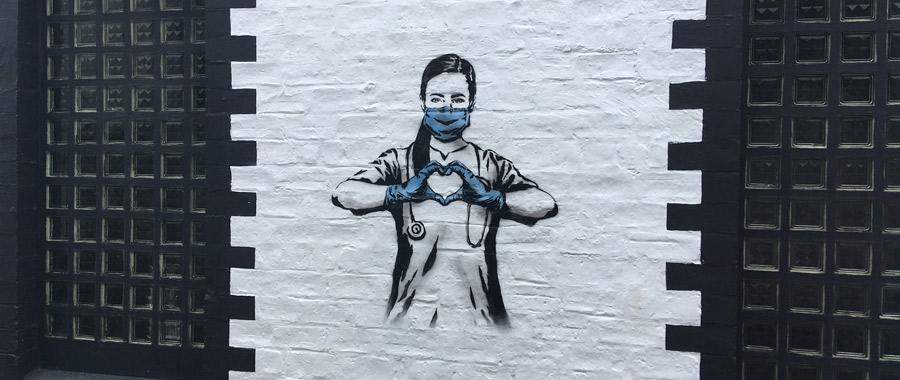In today’s tumultuous world, crises are a common backdrop, presenting challenges that test our resilience and fortitude. How do we maintain our equilibrium amid chaos? How do we nurture the flickering flame of hope when darkness appears to envelop us? The Bahá’í teachings offer profound insights into navigating these turbulent times, illuminating pathways to find hope and strength even in the most testing circumstances.
Understanding the essence of hope is crucial. In Bahá’í philosophy, hope transcends mere optimism. It is an active and dynamic state of being, rooted in an ongoing relationship with the divine. This relationship fosters a sense of trust and reliance on a higher purpose. When crises arise—be they personal tribulations or widespread social upheavals—the Bahá’í teachings remind us to anchor ourselves in this trust, finding solace in the belief that every hardship ultimately serves a greater, divinely orchestrated purpose.
At the core of Bahá’í teachings is the principle of unity. This notion poses a playful question: How can we cultivate an expansive sense of community in a time when division often seems more prevalent? In the face of adversity, the Bahá’í approach encourages individuals to see their challenges not as isolating experiences but as collective endeavors. By fostering connection and collaboration, we can build a resilient community that stands together, sharing burdens and fortifying one another against despair. This communal aspect becomes a vital source of hope, reminding us that we are not alone in our struggles.
Moreover, the Bahá’í teachings emphasize the transformative power of joy. Amid crises, negativity and despair are potent adversaries; they can seize control of our emotional landscape. Yet, finding joy—even in minutiae—can serve as an antidote to despair. This inner joy arises from recognizing the beauty and possibility that exists around us, even in darkness. It is about cultivating a perspective that sees beyond immediate suffering, viewing it as a catalyst for growth and self-discovery. Bahá’ís are encouraged to engage with beauty in various forms—nature, art, music—which can act as restorative forces that renew hope and inspire creativity in times of difficulty.
Nevertheless, the challenge remains: In the context of a crisis, how do we summon the courage necessary to embrace joy? This is where the Bahá’í teachings present the concept of purposeful action. Hope is not a passive sentiment; it is manifested through active engagement with the world. Taking deliberate steps—whether through community service, advocacy, or personal development—can empower individuals, providing them with a sense of agency in their circumstances. The act of serving others becomes a dual source of hope, nurturing both the giver and the receiver, and cultivating a cycle of positivity that reverberates throughout communities.
The Bahá’í teachings also encourage the practice of prayer and meditation, essential tools in the quest for tranquility and focus during turbulence. Engaging in spiritual practices can provide individuals with clarity and an enhanced sense of perspective. They serve as reminders of the enduring nature of the human spirit and the possibility of renewal. Through these practices, individuals often find resilience bolstered by their faith, allowing them to confront the vicissitudes of life with grace and dignity.
Furthermore, adapting to change is an inherent theme within the Bahá’í writings. Embracing the notion that change is an essential facet of existence prepares individuals to meet crises with a mindset geared toward adaptation. Each crisis often paves the way for new opportunities for growth, learning, and development. Bahá’í teachings exhort individuals to view challenges as necessary experiences contributing to personal and collective evolution. This perspective can transform adversity into a platform for meaningful change, sowing the seeds of hope that will bear fruit in future endeavors.
In addition, the importance of cultivating patience during crises cannot be overstated. Bahá’í teachings highlight patience as a virtue that allows individuals to weather storms with resilience. Understood as a form of faith in the unfolding of divine wisdom, patience instills a sense of reassurance that, eventually, clarity will emerge from confusion. Such endurance fosters a nurturing environment for the spirit, creating space where hope can thrive.
Lastly, it is crucial to remember the power of storytelling within the Bahá’í community. Sharing narratives of triumph over adversity connects individuals across diverse backgrounds, weaving a rich tapestry of collective human experience. Stories serve as vessels of hope; they remind us that others have faced similar challenges and emerged strengthened. Within this tradition, the exchange of personal experiences fosters empathy and understanding, reinforcing the interconnectedness that is a cornerstone of Bahá’í teachings. In times of crisis, reflecting on these stories can ignite the flicker of hope, urging individuals to remain steadfast in their own journey.
In conclusion, the Bahá’í teachings provide an extensive framework for cultivating hope in times of crisis. By embracing unity, joy, purposeful action, prayer, adaptability, patience, and storytelling, individuals can navigate their challenges with resilience and grace. These teachings empower individuals to not only find hope for themselves but to be beacons of hope for others. Remember: Crisis can be a doorway to profound transformation, a crucible that forges strength from struggle and illuminates the capacity of the human spirit. So, how will you find hope in your own time of crisis?
